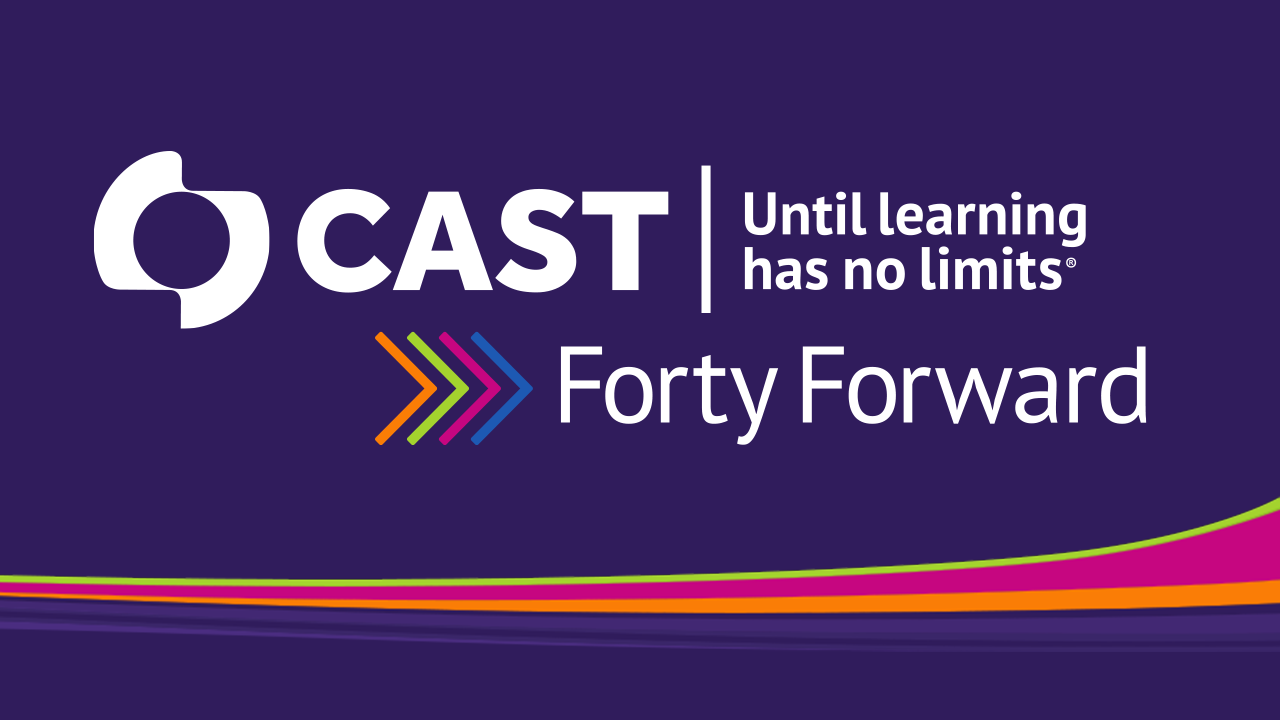Lindsay Jones, CEO of CAST, Leaders in Universal Design for Learning and Accessible Technology Respond to the US Department of Education's 2024 National Education Technology Plan

Date:
Monday, January 22, 2024
Today, the United States Department of Education unveiled the much-anticipated 2024 National Education Technology Plan (NETP), outlining a transformative vision for K-12 teaching and learning enabled by technology. CAST, an innovator in Universal Design for Learning (UDL), commends the groundbreaking plan and its emphasis on fostering engagement, accessibility, and innovation in education.
"Firmly rooted in the post-pandemic era, this plan is a call to action for states, districts, and educators with a clear, empowering message - we can design learning experiences intentionally to increase student engagement, access, and learning. CAST applauds the USED for outlining this bold vision and including so many real-life examples of how school districts and states use Universal Design for Learning, accessibility, and assistive technology to lead the way. The work is inspiring and clearly shows change is possible." said Jones.
The plan emphasizes the importance of the neuroscience of learning and designing learning to maximize engagement through Universal Design for Learning. "We all learn in unique ways and best when engaged. Universal Design for Learning is an approach that can help educators, product developers, and system leaders design for today's classrooms. The world doesn't look like it did 20 years ago, and learning shouldn't either." said Jones.
Addressing the focus on accessible technology, Jones notes, "One critical component of this report is the special attention it pays to the concept of accessible technology and accessibility. When we design for the 'margins,' we invent things we all benefit from. And when we all use these new technologies, we decrease stigma and increase belonging.
This plan represents a pivotal moment in education, signaling a shift towards a future where learning is inclusive, engaging, and accessible for all students. CAST is committed to breaking down barriers, optimizing teaching, and making learning limitless.
To delve deeper into CAST's mission and Universal Design for Learning (UDL), visit our website at www.cast.org. Explore how we are dedicated to creating a world where every learner can thrive, regardless of variability.
For interview opportunities and further insights, please contact Kisha Barton, Senior Director of Communications, at kbarton@cast.org.
About CAST:
CAST is a nonprofit education research and development organization that created the Universal Design for Learning framework and UDL Guidelines, now used the world over to make learning more inclusive. At the foundation of UDL is accessibility and accessibility educational materials, as such CAST runs the National Center on AEM and CITES.
Our Mission: CAST leads, inspires, and convenes a global community to design equitable, inclusive learning experiences through our Universal Design for Learning framework.
Our Vision: We envision a world where all learning experiences in school, the workplace, and life are intentionally designed to elevate strengths and eliminate barriers so everyone has the opportunity to grow and thrive.
About CAST UDL:
Universal Design for Learning (UDL) is a framework to improve and optimize teaching and learning for all people based on scientific insights into how humans learn.
About CAST AEM:
The National Center on Accessible Educational Materials for Learning at CAST provides technical assistance, coaching, and resources to increase the availability and use of accessible educational materials and technologies for learners with disabilities across the lifespan.
About CAST CITES:
The Center on Inclusive Technology & Education Systems (CITES) aims to empower school districts to build and maintain technology systems that include every student, particularly children and youth with disabilities who require assistive technology and accessible materials.
About CAST UDL-Schoolwide Certification and Implementation Criteria:
The CAST-led Universal Design for Learning School Implementation and Certification Criteria (UDL-SICC) defines high-quality, schoolwide, UDL implementation. Like UDL, the criteria are data-driven, support continuous improvement, and provide multiple pathways for schools to progress through the stages of implementation. The UDL-SICC is a robust tool for guiding decisions and supporting ongoing schoolwide growth, whether your team is just getting started or has experienced many years of successful UDL implementation.
About CAST’s UDL Product Certification:
Products that achieve this CAST certification prioritize student access and engagement by following the principles of Universal Design for Learning.
